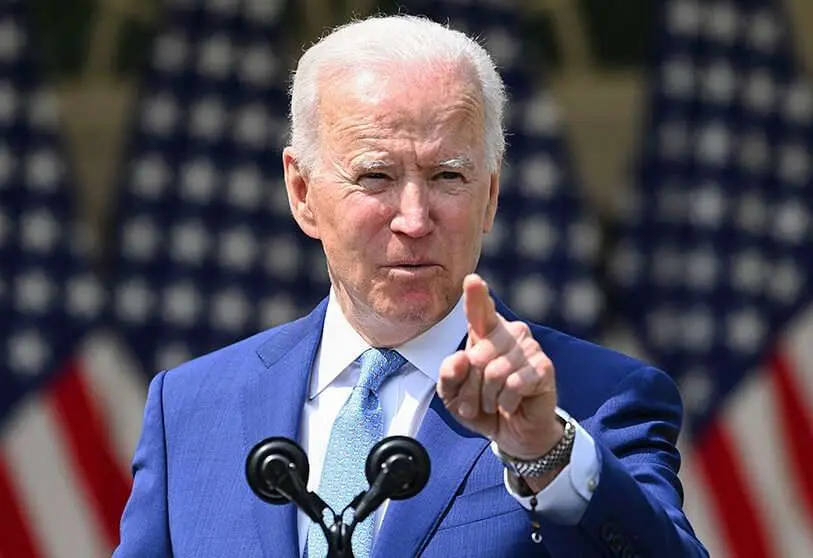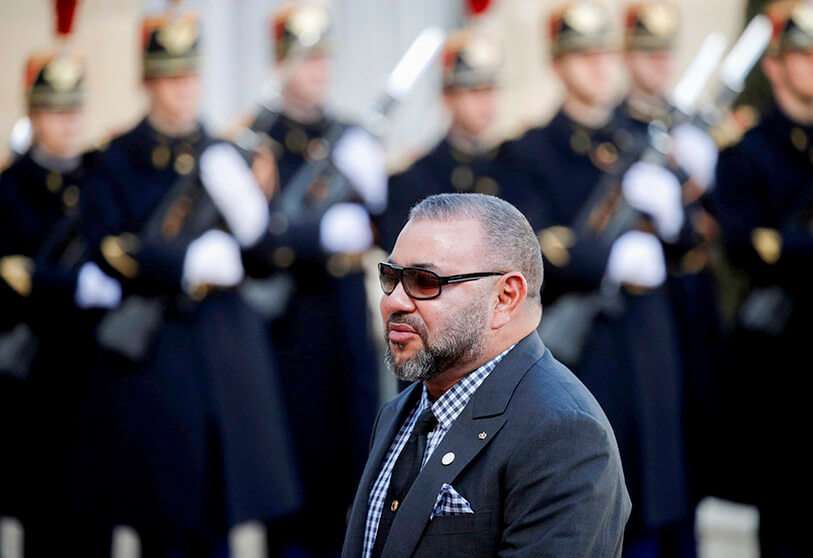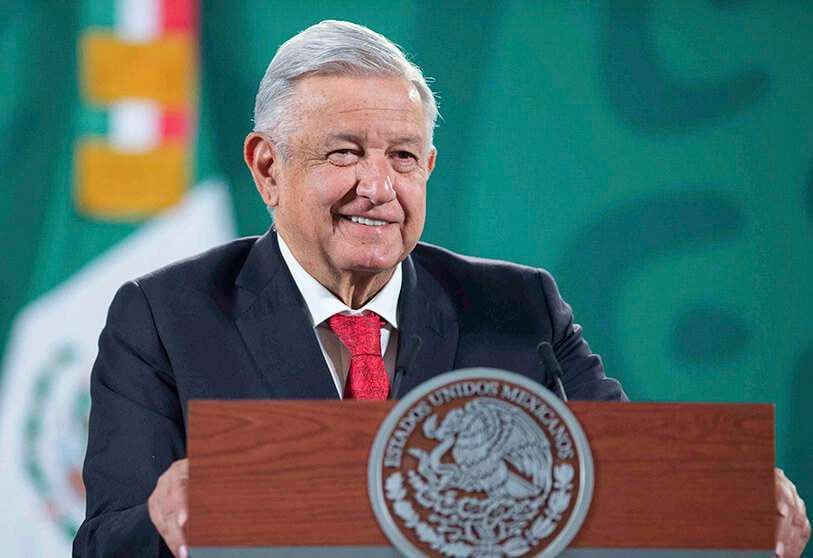Records of a pandemic year in the Americas, Africa and Asia

In November 2020, Timothy Snyder, a professor at Yale University, published an extensive analysis entitled 'The Politics of Pain', in which he pointed out that Donald Trump was not a populist but a 'sadopopulist' and a tribal chieftain. Snyder questioned why the US government has acted in a way that has left more than 200,000 of the country's citizens dead. The academic documented that the coronavirus had killed more Americans than any enemy on the battlefield. "We endure the equivalent of 9/11 every few days. This time, though, Americans took decisions that killed horrendous numbers of other Americans. Like famines, plagues are political; this one is, above all, tribal". That's a good summation of President Donald Trump's handling of the pandemic.
Joe Biden, who promised to administer 100 million doses of vaccine in his first 100 days in office, took a completely different approach to that of his predecessor and, in fact, having met his target ahead of schedule, he took on a new promise: to vaccinate all adults in the United States by the end of May. The current rate of vaccination exceeds two million doses per day. By early March, more than 54 million people had received at least one dose (of one of the vaccines) and nearly 28 million were fully immunised. By that date, the federal government had distributed 109.9 million vaccines to states, territories and federal agencies and, if this pace continues, herd immunity will be reached by August. This is no small feat considering that the United States is the world's most affected country, in absolute terms, by the coronavirus. There have been 28 million infections and half a million deaths in the US. Within a month of Joe Biden's inauguration more than half a million people had died from COVID-19 in the United States: “More Americans have died in this pandemic than in World War I, World War II and the Vietnam War combined,” said the president in late February.

Looking towards Africa, Morocco has been remarkable in managing the health crisis, not only in Africa, but in the world. In fact, it has been noted for its effectiveness, efficiency and vigour. Morocco's crisis management has been far superior to that of several European, Maghreb, African and most Latin American countries. The exemplary behaviour of the head of state is also noteworthy, both in his actions and conduct, which could influence and encourage citizens to emulate them, and in his diligence with regard to containment measures, the speed with which vaccines were purchased and the start of the immunisation or vaccination process. Although the economy contracted by 7% due to the health emergency during 2020, the outlook for this year is optimistic, with Morocco expecting a recovery and growth of around 5.3%. In the context of the pandemic, during 2020, the United Nations observed and documented in the Biden Administration Report on the human rights situation in the country, that security forces "used excessive force" to make people comply with the confinement and curfews. "According to an Amnesty International report published in June, a total of 91,623 people were prosecuted between March and May for violating the state of emergency. At least 588 people remained in detention for violating the state of emergency." Enforcement of measures, provisions and restrictions remain strict and severe in Morocco, for example, on Saturday 10 April, the Moroccan Royal Gendarmerie arrested Mekki El Hannoudi, president of the commune of Louta, near Al Hoceima, who reportedly suggested ignoring the night curfew that extends during Ramadan, as documented by Morocco World News.
Some international measurements highlighted in 2020 that, globally, among countries with somewhat decent economies, the worst crisis management has taken place in South Africa, Colombia and Mexico, according to Bloomberg, and in Colombia, Mexico and Brazil, according to the Australian think tank Lowy Institute. In the case of Mexico, there has been talk for months of official under-reporting of coronavirus deaths and excess mortality in Mexico that far exceeds the number of deaths reported as COVID-19 deaths. Brazil and Mexico have the second and third highest number of deaths in the world due to the pandemic. The first, as noted above, is the United States. The Mexican government, and in particular the undersecretary of health, Hugo López-Gatell Ramírez, has been accused of "criminal management" of the pandemic. This is documented in 'Un daño irreparable: la criminal gestión de la pandemia en México' ('Irreparable damage: the criminal management of the pandemic in Mexico'), a book that came out at the dawn of 2021. Its author, Laurie Ann Ximénez Fyvie, has been supported by Mexican journalists and intellectuals in the face of the disqualifications of the regime and its supporters. Andrés Manuel López Obrador has been a lousy example to the public, doing everything that should not be done in a health emergency, and more than a year after the pandemic was declared, the president still refuses to wear a mask.

The management of the health crisis in Latin American countries, with a few exceptions (Uruguay, Costa Rica, Chile), has ranged from bad, lousy and perverse. Death records, delays in purchasing vaccines and in initiating vaccination processes ( the mediocrity of the Colombian government is noteworthy here) give an idea of what this health and humanitarian catastrophe and the disastrous management of the crisis have been like. The governments of Colombia and Mexico have not only had a questionable management of the pandemic, the government's management of the pandemic itself is controversial, and is rife with domestic blunders and nonsense, but also in terms of foreign policy. A populist authoritarian government like that of the messianic president Andrés Manuel López Obrador stigmatises opponents, critics, journalists and feminist activists. Recently, a López Obrador, visibly upset by his government's indefensible human rights record, not only disqualified the US State Department's report on the human rights situation in Mexico, but chose to "resurrect the cavernous doctrine of 'not commenting' on human rights violations in other countries". As José Miguel Vivanco, Americas director of Human Rights Watch (HRW) rightly pointed out, this is an argument "typical of dictators".
In March, the Duque government, through its ambassador to the United Nations in Geneva, lavished praise and acclaim on the Communist Party of China's dictatorship, as Ambassador Alicia Arango made clear during a session of the UN Human Rights Council, praising, of course, the human rights situation under that totalitarian regime. Was the Colombian government unaware that this is a dictatorship that systematically violates human rights or, rather, is it aware of it but does not shy away from granting flattery and praise in exchange for the Chinese regime selling it vaccines, considering that the Duque government is lagging far behind other governments in the region and the world in the acquisition and supply of vaccines?

The pandemic has not only exposed the shortcomings and limitations of each country, but has also laid bare the miseries and precariousness at all levels, showing the worst of their regimes and governments, starting, of course, with the actions of the totalitarian regime in China. The spread of the coronavirus or COVID-19 in the world goes beyond the health crisis; it is also a question of transparency, the rule of law and freedoms. To put it in a nutshell, transparency is also essential to prevent an epidemic from turning into a pandemic, just as the fight against corruption at the global level would require sanctions for those responsible for concealing information of general interest for several weeks and in a situation that was extremely serious, such as the imminence of an epidemic that turned into a pandemic. Instead, those who tried to warn about what was coming were silenced. Dictatorships do not apologise for their abuses, authoritarianism, arbitrariness, corruption and obscurantism. China "has pushed humanity to the brink of collapse", said journalist Patricia Janiot a year ago. With three million dead worldwide due to COVID-19, it is still valid to ask: Will there be consequences for Beijing? Xi Jinping's government owes the world an explanation. And even more: the international community should demand explanations from China and not favour the impunity of one of the permanent members of the UN Security Council. It is not by chance that the countries with the best indicators in terms of transparency, freedoms (all freedoms) or rule of law in the world are the same or have only slight variations.
Clara Riveros is a political scientist, political analyst and consultant on issues related to Latin America and Morocco. Author of the books 'Transatlantic Dialogue between Morocco and Ibero-America' and 'Transatlantic Dialogues, Morocco Today'. Director of the CPLATAM platform, which promotes liberal ideas and monitors the political situation in Latin American and Maghreb countries.

